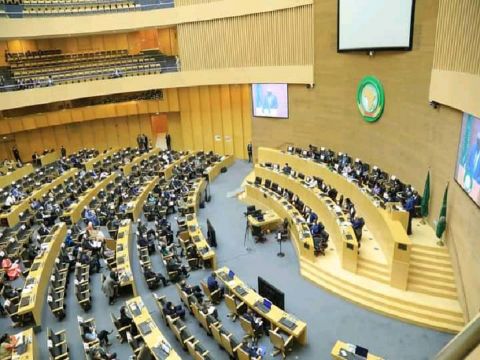An NGO under the agies of ‘The Our Water,Our Right Africa Coalition(OWORAC)’, has called on African leaders to stand in defense of the right to water and reject privatization scheme.
The group made the call on Monday at a virtual media briefing to celebrate its third annual African Week of Action Against Water Privatisation through grassroots community sensitisation and stakeholders engagement.
Mr Akinbode Oluwafemi, the Executive Director of Corporate Accountability and Public Participation Africa(CAPPA)in Nigeria,said that the 2023 commemoration was tagged “Holding Hands to Protect Africa’s Water from Corporate Capture.”
He stated that it centered on the need for collaboration by governments, civil societies and grassroots communities in confronting privatisation and privatisation threats.
Oluwafemi, who is also a member of OWORAC stated that the highlights of the week celebration by the coalition led by CSOs and trade unionists from a dozen African countries was to urge African leaders to stand against a rising tide of threats to communities’access to water.
Oluwafemi urged African leaders representing African Union and ECOWAS,among others, to pay attention particular to the threats that water privatisation and corporate capture posed to the human right to water.
He said that water was not a commodity to be traded, battered, or sold to the highest bidder.
According to Oluwafemi, the rich countries of the global North should avoid funding projects that would bring anti human rights impacts on communities in global South countries, especially in Africa in terms of development aid and interventions.
Similarly,Mr Sani Mohammed, the Public Service International’s Regional Secretary for Africa and Arab countries, said that privatisation of water right was a failure of market-centric water management approaches.
Mohammed explained that only community-driven solutions, rooted in democratic decision making and control of water resources for public good can guarantee water access, quality, accountability, and security of jobs.
He said that the failures of private water multinationals such as Veolia and Suez were well documented around the globe and across the African continent, ranging from unaffordable water tariffs to labour abuses.
Mohammed urged International institutions led by World Bank and Global North Agencies, including USAID to consider the community driven solutions rooted in democratic decision making and control of water resources for public goods.
The Convenor, Water Citizens Network, Ghana, Geoffrey Ocansey,said that the theme of the 2023 conference was a timely and urgent call to action for African governments.
He said that they needed to remember that issues of governance and transparency were central to guaranteeing universal access to water, ensuring that the benefits of water development were shared equitably.
“We at the African Centre for Advocacy, urge African governments,especially Cameroon,to stand against water privatisation in all its forms.
“Strengthen water governance institutions to ensure the meaningful participation of all stakeholders in water decision making and prioritize sustained public funding in the water sector,”Ocansey said.
Furthermore, Everline Akech, Subregional Secretary for English speaking Africa for Public Services International,said that commodification of water in Africa would come at a huge price to be paid by communities whose access to water would be severely restricted.
According to Akech, women who would not be able to afford the huge costs and would have to seek unwholesome alternative,and children severely dehydrated from unquenchable thirst.
“In the face of the challenges of lack of access to water and emerging privatisation threats, the OWORAC stand in solidarity with all impacted communities across Africa, together with our people.
“We insist that the democratic and inclusive management of Africa’s water resources and systems is non-negotiable.
“We reject the commodification of this essential life source and speak in United voices that the right and access to water for every African is not for sale, our governments have a crucial role to play in this regard,” Akech stated.


